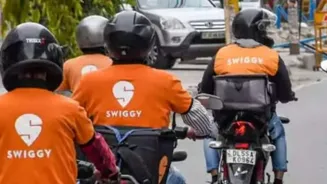GST on online delivery: The GST Council, led by the Finance Minister Nirmala Sitharaman, has done a major overhaul by bringing local e-commerce delivery services under section 9(5) of the CGST Act. It
means online delivery services at the local level will attract 18 per cent GST effective from September 22.
Earlier, local delivery services like food, groceries or parcels locally were not covered under Section 9 (5) of the CGST Act, causing confusion on GST implication.
Under Section 9(5), the Electronic Commerce Operator (ECO) — for example, Swiggy, Zomato, Blinkit, Amazon, etc. — will be made liable to pay GST on behalf of the delivery person, but only in cases where the delivery partner is not registered under GST.
IT means online delivery platforms will have to pay 18 per cent GST on services. However, it would be interesting to see if these operators bear the cost of services or will pass down the extra cost on customers.
Morgan Stanley as quoted by NDTV Profit said the GST change could either hurt Swiggy and Zomato’s profitability if they absorb the cost or their demand if they pass the cost on to the consumer. However, companies like Blinkit were already collecting GST on their delivery fees, so the impact on them may be minimal.
Zomato and Swiggy also hiked the platform fee for its food delivery business in certain regions where they are seeing high demand.
The move comes ahead of the festive season, when demand for food delivery is expected to surge.
The platform fee is a flat fee that food delivery companies Swiggy and Zomato charge from customers on orders.
Swiggy was the first to start charging platform fees. Zomato followed the suit and introduced the platform fee in 2023, as a Rs 2 per order flat levy. While the charges are small compared to the average order value of Rs 500-700, they help in improving the company’s overall margins.



















